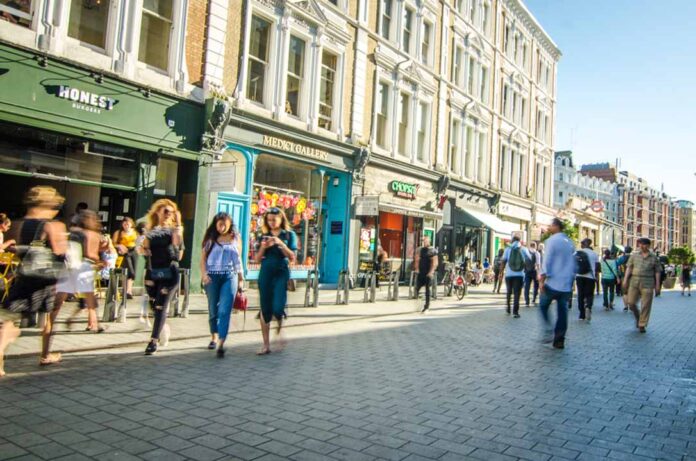The new levelling up Bill will force landlords into letting auctions
Announcing another 68 local authorities that will receive support from the High Streets Task Force, including Southend-on-Sea, Somerset West and Taunton, Rossendale and Dudley, the Government spells out its commitment in its new Levelling Up and Regeneration Bill.
The locations have been allocated using the Indices of Multiple Deprivation (IMD), together with other measures of retail exposure. Delivery of funds and support to these local authorities is to be staggered, starting from this summer, until the end of the programme in 2024.
In addition, new powers are to be introduced as part of the Bill, which will be announced in the Queen’s Speech next month. The Government has said it will give more powers to local authorities to enable them to make high streets and town centres “the thriving hearts of communities again.”
“We will incentivise landlords to fill vacant units by giving local authorities the power to require landlords to rent out vacant properties to prospective tenants. This will tackle both supply and demand side issues to avoid high levels of high street vacancies and blight, and in turn increase the attractiveness and vitality of our high streets,” says the Government’s white paper.
This, the Government says, builds on the High Street Task Force’s wider offer to all communities, which includes online resources and training modules, webinars and access to data dashboards.
New life on the high street
Vacant shops are to be “reborn” under plan which aims to “breathe life into high streets” by forcing landlords to let out retail units that have been vacant for six months
In other words, retail landlords in the chosen locations could be forced to rent out shops that have been vacant for 6 months or more. If the owner can’t let the shop, then councils will be empowered to hold letting auctions.
The plan is to help remove boarded-up shop properties that blight these once thriving town centres, and return them to their former glory by allowing community groups and small businesses to take over.
Conversions and re-purposing
The High Streets Strategy, through changes to the planning laws, has been making it easier to convert empty shops into new uses like high street homes; granting automatic rights for pubs, restaurants and cafes to allow takeaway and al fresco dining; and make high streets safer and cleaner, with a focus on tackling litter, gum staining and graffiti.
The UK Government has been providing £1.7bn of temporary business rates relief in 2022-23 for up to 400,000 retail, hospitality and leisure properties to support the high street until the next revaluation. With the announcement of a freeze in the business rates multiplier worth £4.6bn over the next five years, all ratepayers in England will see a tax cut.
High street vacancies
With one in seven shops vacant on the UK’s high streets, the number of empty shops has soared since the pandemic. Many of these were shuttered during the lockdowns and failed to get back on their feet as the shift towards online shopping has accelerated.
The large fashion retailer chains have been among the hardest hit, with the likes of Debenhams, Dorothy Perkins and Topshop, along with many high street banks, contributing to the vacancies.
Last year more than 8,700 chain stores closed on Britain’s high streets, in shopping centres and on retail parks in the first six months. During this phase of the pandemic there was an average of nearly 50 outlets a day closing down.
But despite some high-profile retail failures, the number of closures has actually stabilised since then and the outlooks appears brighter as the effects of the pandemic recede.
Government support
Lisa Hooker, consumer markets lead at PwC says she believes continued government support, combined with resilient consumer spending, has helped many operators weather the storm and survive the pandemic.
Under the Government’s plans, local authorities will be given the new powers to to force landlords to rent out their vacant commercial property on high streets through a Compulsory Rental Auction. After a short grace period given to landlords to let their shop, the local authority will instigate an auction, inviting bids from interested parties.
Government ministers see this as a means of rapidly reducing the number of boarded-up shops while creating new opportunities for local small businesses and community groups. This, they argue will have a snowball effect, helping increase footfall and spending in these blighted town centres.
Credit: Source link













